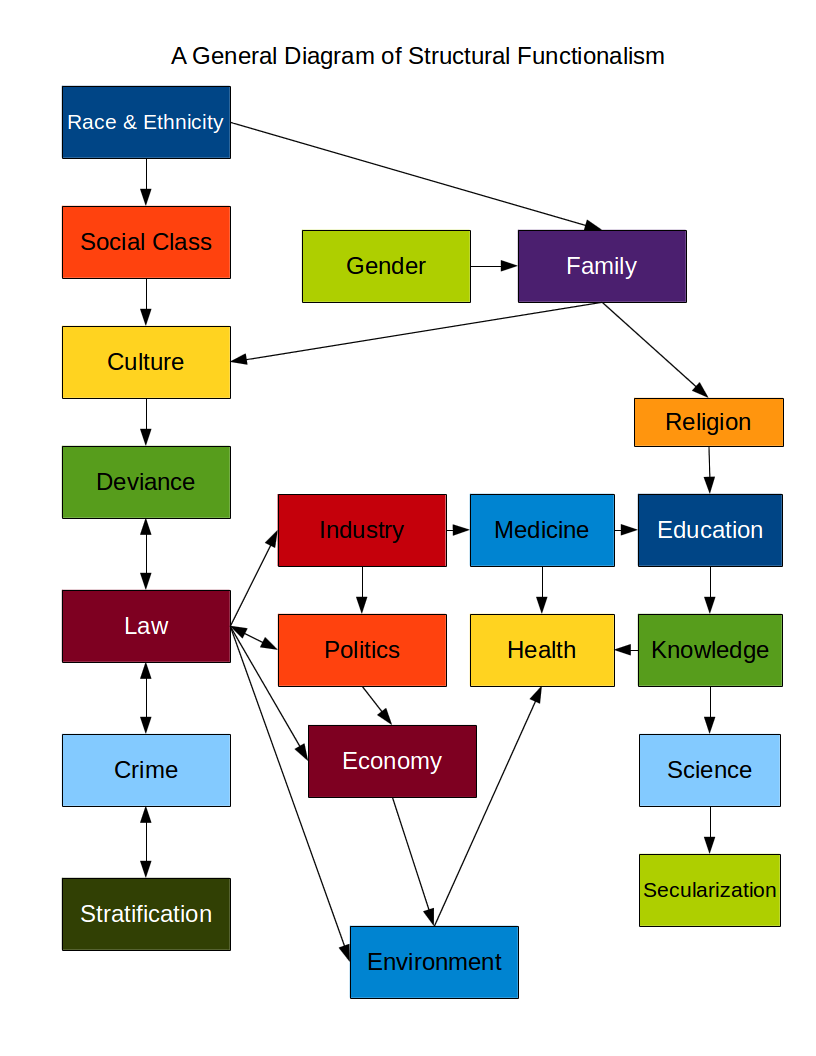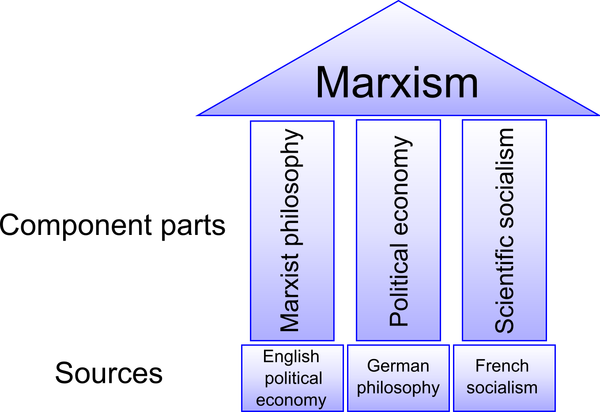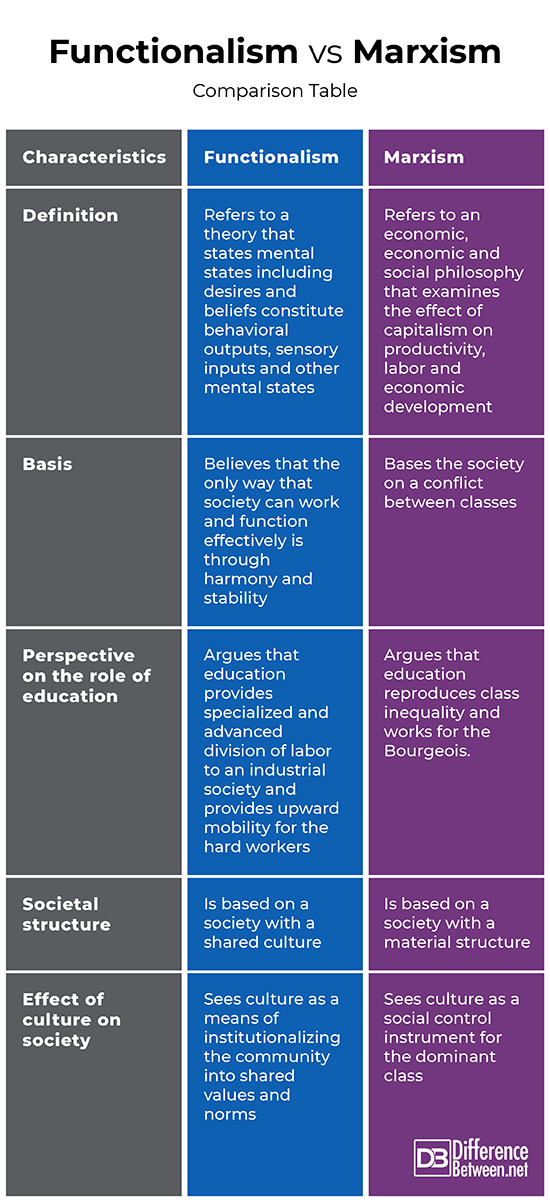Difference Between Functionalism and Marxism
The system by which society ranks people in a hierarchy according to their wealth, status or power, referred to as social stratification is such a conflicting and interesting ideology. This can be examined using different sociological perspectives including symbolic interactionism, conflict theory, functionalism and Marxism. While all take into account ways in which social standing affects people’s lives and how social class is maintained and constructed in everyday interactions, they have differences. In this article, we will discuss in-depth functionalism and Marxism.

What is Functionalism?
Rooted in Aristotle’s conception of the soul, this is a theory that states mental states including desires and beliefs constitute behavioral outputs, sensory inputs and other mental states. As such, a desire, pain or thought depends on its function as opposed to its internal constitution. This doctrine was developed as an alternative to behaviorism and the identity theory of mind and determines the identity of a mental state by its relations to sensory stimulators as opposed to behavior and mental states.
In functionalism, the idea of multiple realizability is an important part of the argument.
Types of functionalism include:
- Machine-state functionalism- This theory relates any creature with a mind to a machine.
- Psycho-functionalism- This argues that complex processes and mental states form the best empirical theories of behavior.
- Analytic functionalism- The goal is analysis or topic-neutral of the ordinary mental concepts or states.
- Homuncular functionalism
- Mechanistic functionalism

What is Marxism?
Named after Karl Marx, this is an economic, economic and social philosophy that examines the effect of capitalism on productivity, labor and economic development. It points to the struggle faced between social classes specifically the capitalists or bourgeoisie and the workers or proletariat.
Marxism lays out the theory of revolution and class struggle and focuses on the criticisms of capitalism as laid out in Das Kapital, a nook published by Karl Marx in 1867. According to this theory, society is divided into the bourgeoisie who controls the means of production and the workers. This control over the workers allows them to limit and control the level of production. Despite the inability of workers to own means of production, Marx viewed an employee’s labor as a form of commodity.
In Marx’s views, the inequalities between the bourgeoisie and the proletariat would lead to a revolution that would lead to the abolishment of capitalism and be replaced by socialism or communism.
Similarities between Functionalism and Marxism
- Both emphasize the importance of harmony and stability in society
- Both view society as a whole
Differences between Functionalism and Marxism
Definition
Functionalism refers to a theory that states mental states including desires and beliefs constitute behavioral outputs, sensory inputs and other mental states. On the other hand, Marxism refers to an economic, economic and social philosophy that examines the effect of capitalism on productivity, labor and economic development.
Basis
While functionalism believes that the only way that society can work and function effectively is through harmony and stability, Marxism bases the society on a conflict between classes.
Perspective on the role of education
While functionalism argues that education provides specialized and advanced division of labor to an industrial society and provides upward mobility for the hard workers, Marxism argues that education reproduces class inequality and works for the Bourgeois.
Societal structure
While functionalism is based on a society with a shared culture, Marxism is based on a society with a material structure.
Effect of culture on society
While functionalism sees culture as a means of institutionalizing the community into shared values and norms, Marxism sees culture as a social control instrument for the dominant class.
Functionalism vs. Marxism: Comparison Table

Summary vs. Functionalism and Marxism
Functionalism refers to a theory that states mental states including desires and beliefs constitute behavioral outputs, sensory inputs and other mental states. It sees culture as a means of institutionalizing the community into shared values and norms. On the other hand, Marxism refers to an economic, economic and social philosophy that examines the effect of capitalism on productivity, labor and economic development. It sees culture as a social control instrument for the dominant class. Both, however, emphasize the importance of harmony and stability the society and view society as a whole.
- Difference Between Profit Center and Investment Center - July 2, 2022
- Difference Between Anti-Trust and Anti-Competition - June 6, 2022
- Difference Between Stocktaking and Stock Control - June 6, 2022
Search DifferenceBetween.net :
Leave a Response
References :
[0]Nicos P. Mouzelis. Back to Sociological Theory: The Construction of Social Orders. Springer Publishers, 2016. https://books.google.co.ke/books?id=NAG_DAAAQBAJ&pg=PA55&dq=Difference+between+Functionalism+and+Marxism&hl=en&sa=X&ved=2ahUKEwj3zMjF3YHrAhUBCRoKHbeXAfAQ6AEwAHoECAMQAg#v=onepage&q=Difference%20between%20Functionalism%20and%20Marxism&f=false
[1]Seymour Lipset. Consensus and Conflict: Essays in Political Sociology. Transaction Publishers, 1985. https://books.google.co.ke/books?id=dWNUOaUi384C&pg=PA13&dq=Difference+between+Functionalism+and+Marxism&hl=en&sa=X&ved=2ahUKEwj3zMjF3YHrAhUBCRoKHbeXAfAQ6AEwAXoECAIQAg#v=onepage&q=Difference%20between%20Functionalism%20and%20Marxism&f=false
[2]Mark Kirby. Sociology in Perspective. Heinemann Publishers, 2000. https://books.google.co.ke/books?id=NE7fykwlOl8C&pg=SL7-PA28&dq=Difference+between+Functionalism+and+Marxism&hl=en&sa=X&ved=2ahUKEwj3zMjF3YHrAhUBCRoKHbeXAfAQ6AEwA3oECAAQAg#v=onepage&q=Difference%20between%20Functionalism%20and%20Marxism&f=false
[3]Image credit: https://freesvg.org/img/3S3CPOM.png
[4]Image credit: https://commons.wikimedia.org/wiki/File:General_Diagram_of_Structural-Functionalism.png
